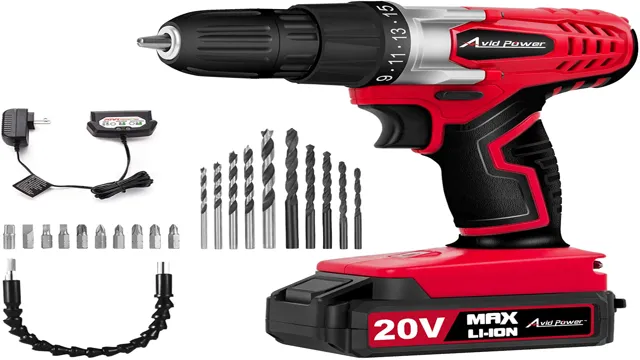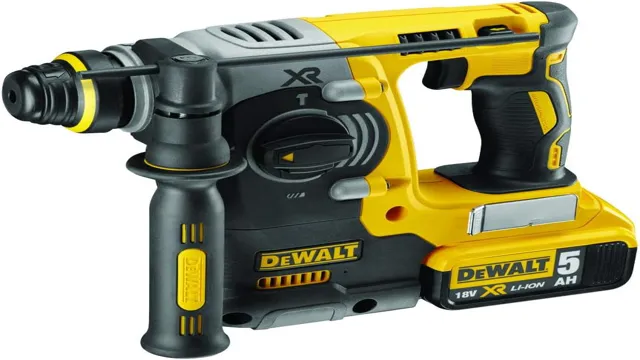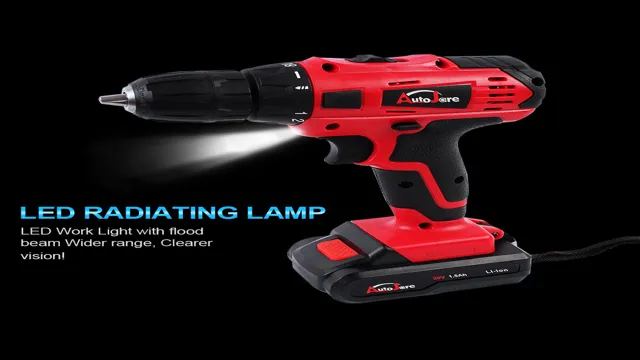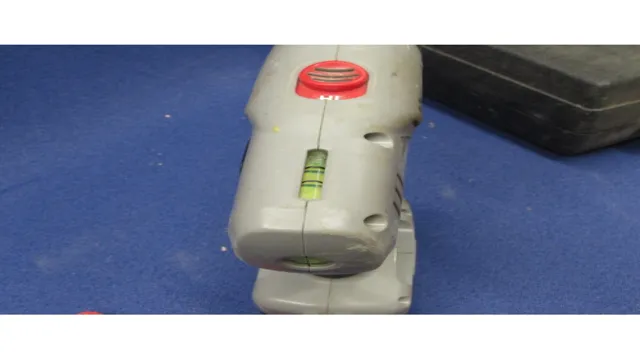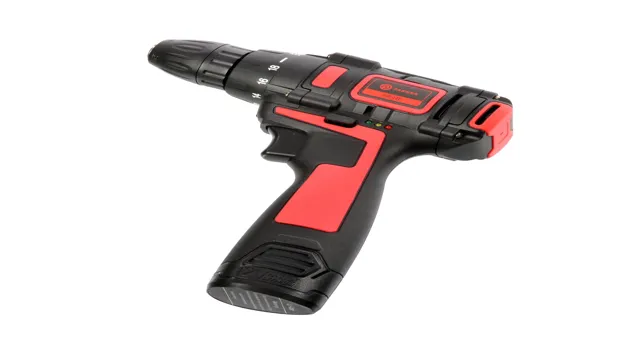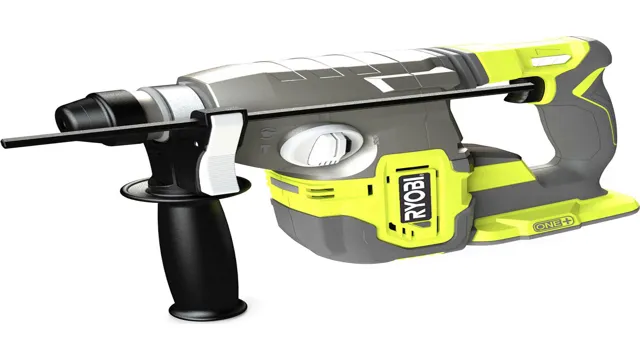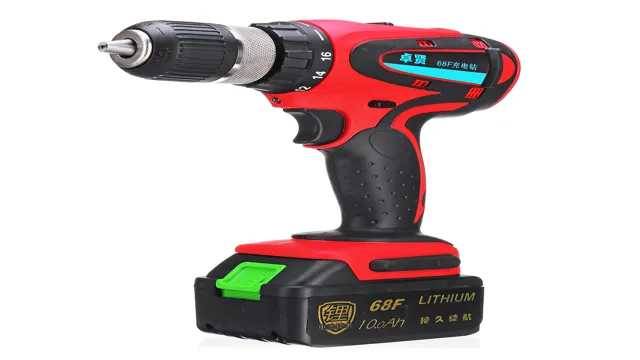Can Cordless Impact Driver Drill Holes? Simple Guide to Choose the Best One
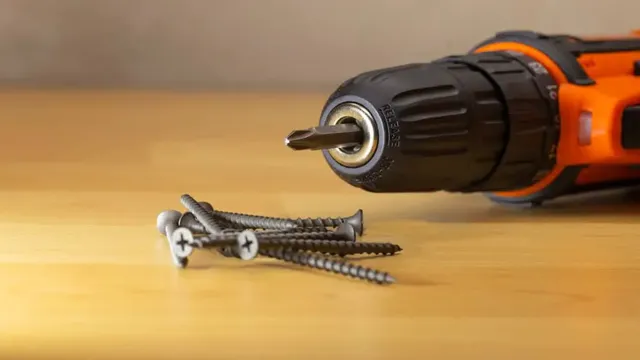
If you’re wondering whether or not a cordless impact driver can drill holes, you’re not alone! Many DIY enthusiasts and professional contractors alike have asked this question. The answer is yes – cordless impact drivers can indeed drill holes! Although impact drivers are typically used for driving screws and other fasteners, they can also be used to drill holes in various materials such as wood, metal, and masonry. With the right bits, these power tools can create holes quickly and efficiently.
In fact, some professionals even prefer to use impact drivers over traditional cordless drills for certain drilling applications. This is because impact drivers are designed to deliver high torque output, making them ideal for tasks that require plenty of power. So if you’re looking for a versatile power tool that can handle both driving and drilling tasks, a cordless impact driver may be perfect for your needs.
With its impressive power and portability, you’ll be able to tackle a wide variety of projects with ease.
Understanding Cordless Impact Drivers
If you’re new to power tools or simply curious about the capabilities of cordless impact drivers, you may be wondering if they can drill holes. The short answer is yes, but with some limitations. Cordless impact drivers are primarily designed for driving screws and bolts, but many models come with a chuck adapter that allows them to hold drill bits.
However, impact drivers are not the best choice for drilling large or deep holes, as they lack the precision and control of a drill. Additionally, because impact drivers apply constant rotational force, they can cause smaller drill bits to break or wear out faster than a regular drill. That being said, for small or shallow holes (up to 1/4 inch in diameter), an impact driver will do the job just fine.
If you need to drill larger or more complex holes, it’s best to use a dedicated drill or hammer drill.
What is a Cordless Impact Driver?
Cordless impact drivers are handheld tools that help with a wide range of projects, especially those that require high levels of torque. The main difference between an impact driver and a traditional drill is the way that they work. An impact driver uses a rotational force, combined with a series of quick, powerful bursts of forward torque, to drive screws and other fasteners into materials.
This combination packs a huge punch and enables the tool to drive even the toughest screws with ease. The cordless feature means that there are no cords or wires to worry about, and you can use them almost anywhere. If you’re someone who loves doing DIY projects around the home or is a professional tradesperson, owning a cordless impact driver can significantly reduce the time taken to complete your tasks, allowing you to complete more work with less effort.
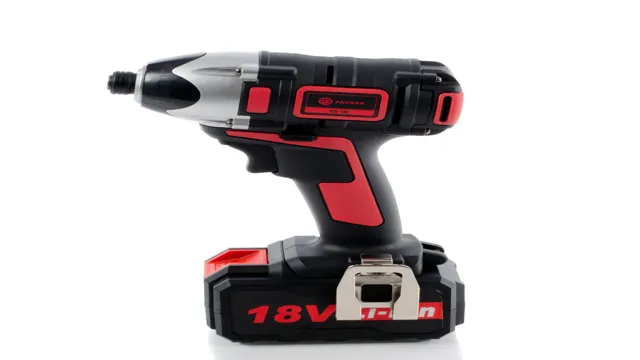
How Does a Cordless Impact Driver Work?
If you’re in the market for a powerful tool that can make the most out of tough jobs, then the cordless impact driver might be what you need. Unlike a regular drill, a cordless impact driver works by using rotational force coupled with bursts of concussive power that allow it to drive screws and bolts with much greater ease. The unique design of an impact driver involves an anvil and a hammer that creates these bursts of power, which in turn makes them a great choice for those tight spaces that require a little extra torque to loosen.
Cordless impact drivers are powered by batteries, making them much more portable than their corded counterparts. With a few battery swaps, you can keep your impact driver going all day long. Overall, understanding how a cordless impact driver works can help you make the most out of a wide range of jobs and gives you the edge you need to get things done quickly and efficiently.
Can Cordless Impact Drivers Drill Holes?
Many people often wonder if cordless impact drivers can drill holes. The answer to this question is yes! Cordless impact drivers are not just for driving screws and nuts, but they can also drill holes into wood, metal, and other materials. However, it is important to note that impact drivers are not designed for heavy-duty drilling tasks.
They are best suited for drilling holes significantly smaller than the diameter of the driver bit, and for drilling into softer materials. If you need to drill larger holes or into harder materials, it is recommended that you use a traditional drill. Nevertheless, cordless impact drivers are a great tool to have in your toolbox as they provide a quick and efficient way to drill small holes and drive screws.
So, if you’re looking for a versatile and powerful tool to tackle various DIY projects, a cordless impact driver is definitely worth considering!
Factors to Consider
When it comes to drilling holes with a cordless impact driver, there are a few factors to consider. First, the size of the hole you need to drill will determine if an impact driver is the right tool for the job. If you need to drill small holes for screws or fasteners, an impact driver can handle that with ease.
However, if you need to drill larger holes for piping or electrical work, a cordless drill may be a better choice. Additionally, the type of material you are drilling into will also impact whether or not an impact driver can handle the job. If you are working with softer materials, such as wood or drywall, an impact driver can handle them with ease.
You May Also Love:
However, if you are working with harder materials, such as metal or concrete, a specialized tool may be necessary. In general, an impact driver is a versatile tool that can handle a wide range of drilling tasks, but it’s important to consider the specifics of your project before choosing a tool.
Types of Drill Bits Used
Impact driver, drill holes, types of drill bits Have you ever found yourself wondering if your cordless impact driver can drill holes? The answer is yes! While impact drivers are primarily used to drive screws and nuts, they can also be used for drilling. However, it’s important to note that not all drill bits are suitable for use with an impact driver. You would need to use specific types of drill bits that are designed for impact drivers, such as hex shank bits or bits with hexagonal shafts.
These bits have a special design that allows them to be locked into the impact driver’s chuck securely, avoiding slipping or stripping. When it comes to drilling holes, it’s best to use spade bits or twist drill bits. Spade bits are great for drilling larger holes, and twist drill bits are ideal for making smaller holes in various materials, including wood, metal, and plastic.
So, if you have an impact driver and some compatible drill bits, you’re good to go for both driving and drilling!
What Types of Holes Can Cordless Impact Drivers Drill?
Yes, cordless impact drivers can indeed drill holes, but the types of holes they are capable of drilling may vary depending on the model and the size of the drill bit. Generally, cordless impact drivers are best suited for drilling smaller diameter holes in softer materials like wood, drywall, and plastics. However, with the right accessories and drill bits, they can also be used to drill larger diameter holes in metal, concrete, and masonry.
It’s important to note that cordless impact drivers are designed for rapid, high-torque driving tasks rather than precision drilling, so they may not be the best choice for jobs that require precision and control. When it comes to drilling holes, it’s always best to choose the right tool for the job to ensure safety, efficiency, and quality results.
Safety Precautions When Using Cordless Impact Drivers
Yes, cordless impact drivers can definitely drill holes. But before you start drilling away, it’s important to take some safety precautions. First, make sure you have the appropriate drill bit for the job, and that it’s secure in the chuck.
Wear eye and ear protection to avoid any potential flying debris or loud noise. Keep your hands and fingers away from the chuck, and make sure the workpiece is clamped securely to avoid any slipping or movement. Lastly, be aware of your surroundings, and never use the tool in wet conditions or near flammable materials.
By following these safety precautions, you can use your cordless impact driver to drill holes with ease and confidence.
Protective Equipment Needed
When working with a cordless impact driver, it is important to take necessary safety precautions. While these tools make your job easier and faster, they can also be dangerous if not used correctly. One of the most crucial safety measures is ensuring that you have the right protective equipment, such as safety glasses, gloves, and earplugs.
This equipment can help prevent injuries caused by flying debris, loud noises, and vibrations. You should also make sure that the area in which you are using the tool is clear of any obstructions and that you have a firm grip before starting. By taking these precautions and using the right gear, you can ensure a safe and successful project with your cordless impact driver.
Remember, always prioritize safety over speed and efficiency to prevent any accidents from occurring.
Proper Use and Care of Cordless Impact Drivers
Cordless Impact Drivers When it comes to using a cordless impact driver, safety should always come first. Before using the tool, make sure to read the instructions carefully and understand how it works. Wear proper safety gear such as eye and ear protection, gloves, and a dust mask if necessary.
Check the battery and tool for any damage before use, and never attempt to use a damaged tool. Always keep your hands away from the bit while the tool is in use and keep a firm grip on the tool to prevent it from slipping. When changing the bit, make sure the tool is turned off and the battery is removed.
Proper maintenance and care of the tool can also prevent accidents. Store the tool in a dry place and keep it clean of debris. Regularly check the battery and charging system to ensure it is working properly.
By following these safety precautions, you can ensure that you have a safe and successful experience with your cordless impact driver.
Conclusion and Final Thoughts
In conclusion, can a cordless impact driver drill holes? Absolutely! It’s versatile enough to tackle a range of tasks, from driving screws to drilling through tough materials like wood and metal. In fact, its powerful torque and rapid bursts of force make it an excellent choice for creating clean, precise holes in even the toughest of surfaces. So the next time you need to bore a hole, skip the traditional drill and grab your trusty cordless impact driver instead!”
FAQs
Can a cordless impact driver drill holes in concrete?
Depending on the power of the impact driver, it may be able to drill small holes in concrete but it is not recommended for larger holes or heavy duty drilling.
Will a cordless impact driver be powerful enough to drill through metal?
Yes, most cordless impact drivers have enough power to easily drill through metal.
Can a cordless impact driver be used for woodworking projects?
Yes, cordless impact drivers are versatile tools that can be used for woodworking projects such as driving screws and drilling pilot holes.
Is a cordless impact driver more efficient than a regular drill for driving screws?
Yes, a cordless impact driver uses rotational force and bursts of torque to drive screws faster and more efficiently than a regular drill.
Can a cordless impact driver be used for automotive repair?
Absolutely, cordless impact drivers are commonly used for automotive repair tasks such as removing lug nuts and other fasteners.
What types of materials can a cordless impact driver drill through?
Cordless impact drivers are best suited for drilling through softer materials such as wood and plastic, but some models can also handle harder materials like metal and concrete.
Do I need special bits for my cordless impact driver or can I use regular drill bits?
For optimal performance, it is recommended to use impact-rated bits specifically designed for use with impact drivers. Regular drill bits may not be able to handle the high torque and rotational force of an impact driver and can break or wear down quickly.

